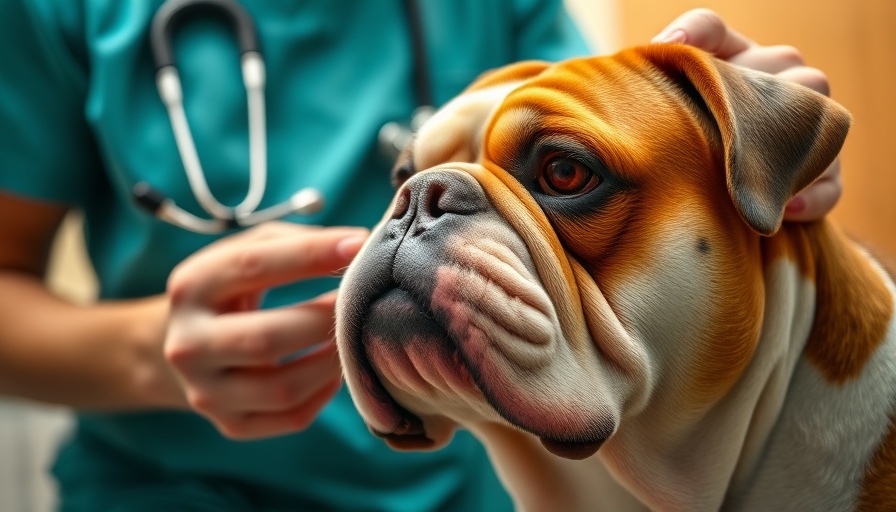
Understanding Dog Eye Allergies: What Every Pet Owner Should Know
As any pet owner knows, our furry friends can be sensitive creatures. One particularly common ailment that affects dogs is eye allergies, known medically as allergic conjunctivitis. These allergies can cause your dog significant discomfort, presenting symptoms like itchy, watery, or red eyes. Understanding the causes and symptoms of dog eye allergies can help you act swiftly to provide relief.
What Triggers Allergic Reactions in Your Dog's Eyes?
Eye allergies in dogs are triggered by various allergens that your pet may encounter while outdoors. Seasonal allergies, especially those related to pollen, dust, and mold, are some of the most prevalent culprits. For instance, flowering plants and trees release small particles that, when they make contact with your dog's sensitive eyes, prompt an allergic response. The dog's immune system tries to combat the allergen, resulting in increased tear production and, eventually, ocular discharge. This process can lead to uncomfortable symptoms, prompting dogs to rub their faces or squint their eyes.
Recognizing the Symptoms of Dog Eye Allergies
Identifying dog eye allergies requires keen observation. Symptoms can manifest in various ways, including:
- Clear, cloudy, yellow, or greenish discharge from the eyes
- Redness or swelling around the eyes
- Persistent scratching or itching of the eyes
- Squinting or excessive blinking
If you notice any of these symptoms, consult with your veterinarian, who can provide a proper diagnosis and treatment options.
Practical Steps for Managing Dog Eye Allergies
Once diagnosed, there are several approaches to managing eye allergies in dogs. Flushing the eye with a veterinarian-approved eye wash can help relieve irritation. Additionally, keeping your dog's environment clean and reducing exposure to known allergens can mitigate symptoms. Consider these actionable tips:
- Wipe your dog's eyes with a damp cloth to remove any pollen or debris.
- Ensure your home is free of dust and other allergens by regularly cleaning your living space.
- Limit outdoor activities on high-pollen days, especially during spring and fall.
These proactive steps can significantly improve your dog's comfort during allergy season.
Veterinary Diagnosis and Treatment Options
When symptoms arise, a timely visit to your veterinarian is crucial for accurate diagnosis. They will perform an examination and may run allergy tests to pinpoint what’s triggering your dog's symptoms. Treatment might include anti-allergy medications or topical eye drops to relieve discomfort. The veterinarian could also suggest lifestyle changes or modifications to your pet's diet if food allergies are suspected.
Preventing Future Eye Allergies
While it isn't always possible to eliminate allergens from your dog's environment, preventative measures can significantly lessen their effects. Regular bathing can remove allergens from your pet's fur, and employing air purifiers in your home can help filter out airborne allergens. Additionally, discussing environmental control methods with your vet can provide you with tailored solutions for your dog's specific needs.
The Importance of Staying Aware
As loving pet owners, it's our responsibility to remain vigilant and attentive to our dog's health. Eye allergies may not be deemed a medical emergency, but they can impact your pet's quality of life. By knowing the signs and taking preventive action, you can provide the comfort and care your furry companion deserves.
Taking Action for Your Pet's Comfort
If your dog is showing signs of eye allergies, don't hesitate to reach out to a veterinarian for advice. Understanding the problem and taking proactive steps can significantly enhance their comfort. Keep a watchful eye and take action to ensure your furry friend remains healthy and happy this allergy season!
 Add Row
Add Row  Add
Add 


 Add Row
Add Row  Add
Add 

Write A Comment